Inside the Materials Recovery Facility
Regional recycling helps Milwaukee and Waukesha recover waste. Our photos capture the process.
Of all the events that grace our city’s calendar each year, Doors Open Milwaukee is my favorite. Like a slightly O.C.D. tourist, I plan my routes both by topic and geography, in order to maximize the amount of sites I’ll see each day. This year, I went for industrial locations in Milwaukee that are not normally open to the public. One of the most eye-opening sites I encountered was the City of Milwaukee & Waukesha County Materials Recovery Facility, otherwise known as our local recycling plant. It is located in the Menomonee Valley at 1401 W. Mount Vernon Ave.
In short, a materials recovery facility (or MRF, in recycling speak) is a plant to which recyclables are trucked in for sorting by material type. Once the materials are separated, they are organized into uniformly-sized bales that can be sold to any interested buyer. On the tour, our group got to see every stage of the sorting process (while the machines weren’t running).
The bales of sorted material are sold to a wide variety of companies around the country, where the materials can be turned into new products. Metal cans are sold to steel mills and foundries to be remolded into cans and other metal products. But some of the other uses for the recyclables are less predictable. Phone books are sent to Ohio to be remade into home insulation. Some of the #1 plastic bottles get a second life in Georgia as new carpets, while a portion of the #2 plastic jugs are transformed into lawn furniture in Illinois. Large laundry baskets can be made into plastic paint buckets in Alabama, while paper cartons are sent to the Fox Valley to be turned into tissue and toweling. Glass processed at the facility tends to stay in Milwaukee, with some of it being used for road paving, and another portion going towards new bottles at the local breweries. The outcomes for the recyclables from the local MRF are nothing if not varied.
The new facility came about as a joint venture between Waukesha County and the City of Milwaukee (the Milwaukee County suburbs handle their recycling elsewhere), which operated separate materials recovery facilities until the late 2010s. Both entities were dealing with aging equipment, and dual-stream recycling was falling out of favor, because dual-stream recycling requires residents to sort material by type. In a rare show of regional solidarity, the City of Milwaukee and Waukesha County decided that a shared single-stream facility would be the most efficient and economically feasible option going forward. The city and county hired a private firm called ReCommunity to design, build, and run the regional MRF, which opened in March 2015. According to a press release from the MRF, the plant can process 35 tons of recyclables per hour, and 60,000 tons per year.
Random Tips for Recycling
- The most profitable material that the MRF sells is aluminum cans.
- The MRF accepts plastics # 1, 2, 4, and 5. Don’t send in #3, 6, or 7 plastics. It is cheaper to buy virgin materials to make #3 plastics than to buy recycled #3’s, so the MRF does not accept them.
- One of the most effective things a person can do to lessen their environmental impact is to use a reusable water bottle rather than plastic bottles. While plastic water bottles are initially recyclable, the plastic degrades over time, and eventually will wind up in a landfill.
- Small items like bottle caps fall through the system when not attached to anything larger. If you would like to recycle the cap of a plastic bottle, make sure the cap is screwed onto the bottle. If you would like to recycle the plastic cap of a paper carton, the cap must be separated from the carton (since paper will be sold separately from plastics) and somehow grouped with other plastics. Beer bottle caps or metal can lids should be placed inside of a metal can, with the top rim of the can pinched together.
- The regional MRF cannot handle plastic bags, which get trapped in their equipment. A group called Wrap Recycling Action Program (W.R.A.P.) has filled this gap by encouraging local grocery stores to collect plastic bags for recycling. To find a grocery store that accepts plastic bags for recycling, check this website.
- Surprising items that the MRF accepts include metal cooking pots and pans, bulky #2 plastics including large buckets and crates, and waxed paper drinking cartons.
And now for our tour inside the Materials Recovery Facility.
Photo Gallery
If you think stories like this are important, become a member of Urban Milwaukee and help support real, independent journalism. Plus you get some cool added benefits.
Doors Open
-
Milwaukee’s Secret Model Railroad Club
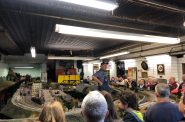 Sep 30th, 2019 by Jeramey Jannene
Sep 30th, 2019 by Jeramey Jannene
-
11 Must-See Doors Open Sites
 Sep 24th, 2019 by Jeramey Jannene
Sep 24th, 2019 by Jeramey Jannene
-
A Tale of Glorious Malone’s Fine Sausage
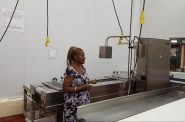 Sep 20th, 2018 by Laura Thompson
Sep 20th, 2018 by Laura Thompson


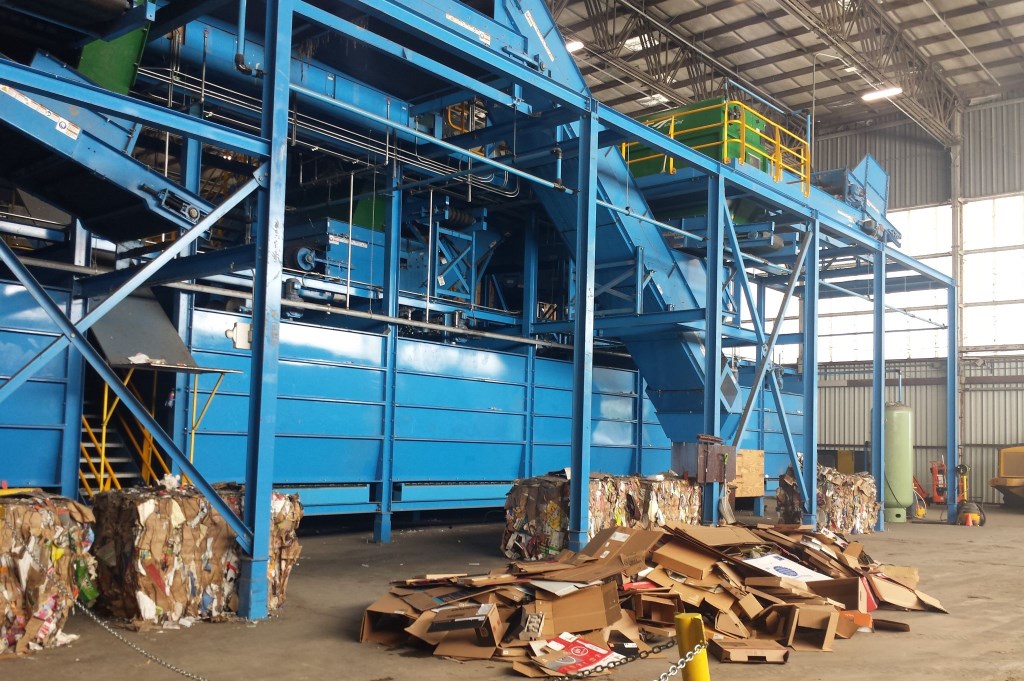
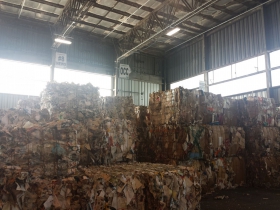
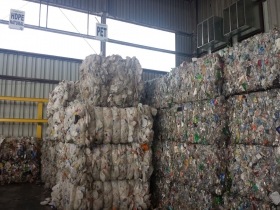
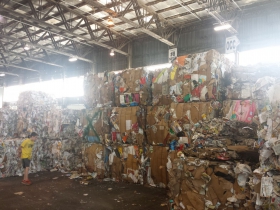
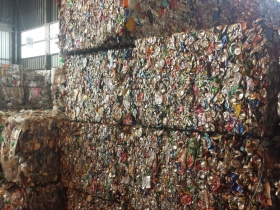
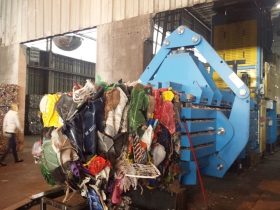
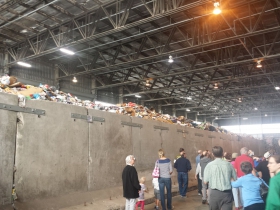

















Thanks for the write up! This is quite interesting. The move to single stream was a huge help for makjg it easier for folks to recycle and the benefits are tremendous for the environment.
What’s a “Phone Book”? 😀
Thanks for this interesting ”reveal”, Laura. Looking forward to taking a tour myself,
Something you mentioned could be further emphasized. I saved a newspaper article in which officials discussed the effects of tossing plastic bags, such as grocery bags and trash bags, in with the recyclable stuff. To hear them describe it, these bags are the absolute bane of their existence. As stated in your piece, they jam up the equipment and cause major inefficiencies as they have to be fished out (manually, I suppose?) to get the equipment restarted. My guess is that lots of citizens don’t know or maybe don’t care about this. But it is such a simple and easily understood thing. Seems to me there should be a major campaign to alert people to this unacceptable practice, which is all too common.